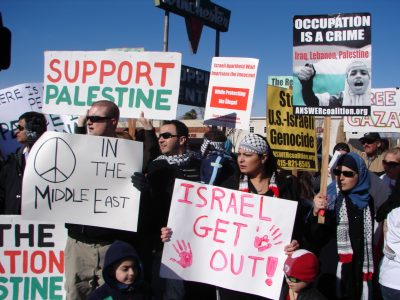Massacre in Gaza: Political Narratives and the “The Decency of Violence”

It has the makings of another Intifada: appalling timing in terms of commemoration (the founding of the state of Israel; the opening of the US embassy in Jerusalem in all-Trumpistan affair); popular protest with all its untidy trimmings; then a massacre clinically inflicted by forces with superior fire power.
On Monday, the use of force by Israeli forces supposedly designed to quell riots and prevent an incursion by Palestinians from Gaza initially resulted in 58 deaths. The numbers duly grew, and it did not take long for a packaged, ribboned narrative to appear.
For one thing, who were the dead? Hamas official Salah Al-Bardawil offered a morsel to the Israeli forces by telling the Palestinian Baladna news outlet that of the 62 who perished over Monday and Tuesday, “fifty of the martyrs were Hamas and 12 from the people.” This made the moral computation for the Times of Israel simple: the bulk of deaths were “known members of terror groups”.
The Israel Defence Forces, in an attempt at wholesale unmasking, were quick to release selected footage of the interview with Al-Bardawil turning his words against him and emptying them of moral suasion:
“Hamas official, Dr. Salah Al-Bardawil,” came one tweet “is clear about terrorist involvement in the riots.”
Since then, the IDF has been busy constructing an oasis of certitude with one central point: Hamas did it, and the deaths were less from Israel’s weapons than Hamas’ remorseless calculation, much of it centred on attempts to breach the fence in the northern Gaza strip.
“Hamas,” went another statement, “is solely responsible for the events transpiring in and out of Gaza, and is accountable for all terrorist activity emanating from Gaza targeting Israeli civilians and Israeli sovereignty.”
Defence Minister Avigdor Lieberman was even more colourful in his description of these barbarians at the border. The leaders of Hamas were “a bunch of cannibals who also treat their own children as ammunition”.
The Israeli position, stated by Danny Danon as UN envoy, is to refocus attention on Hamas as wicked instigator and hostage taker. Israel thereby becomes legitimate defender, a force of security facing agents of a barbarian project led by Lieberman’s cannibals.
“They incite people to violence, place as many civilians as possible in the line of fire to maximise civilian casualties, then they blame Israel and come to the UN to complain. It is a deadly game they play at the expense of innocent children.”
Positions are stated as absolutes, with compromise being seen as an enemy of promise. Terminology here is everything: a “right of return” is turned on its head as redemptive cause and a righting of wrongs that could only mean the destruction of the Jewish state. Danon, again, emphasises these extremes with ideological certitude:
“When [Hamas] say day of rage they mean day of terrorism; right of return means the destruction of Israel; peaceful protest means incitement and violence.”
Violence, restraint, calm – all variables of relative worth where cruelty and brutality reign, and where humanitarian shocks sanctioned by Israel and Egypt function with ritual consistency. Gaza is a picture of enforced debility; options to behave decently are not to be found. But this is not a context that finds its way into assessments of IDF conduct. To the US ambassador to the UN, Nikki Haley, Israel was a paragon of propriety, its operations on Monday and Tuesday compelling.
“No country in this chamber could act with more restraint than Israel has.”
Those outside the traditional US-Israel compass resort to the desk clerk’s alternative, a clip-board response with pen at the ready. Establish, goes this line of thinking, a committee, an investigation, an inquiry with findings that are bound to be shelved and ignored, redundancies even before the first question is asked.
UK ambassador to the UN Karen Pierce took issue with the ammunition being used.
“The volume of live fire used in Gaza [on Monday] and the consequent number of deaths is distressing and cannot be ignored by the council”.
Activists are considering how to bolster the Boycott, Divestment and Sanctions (BDS) campaign, though the recent massacre is bound to provide ample grist. The Palestinian Liberation Organisation’s Mustafa Barghouti used Monday’s violence to tell the BBC’s Newshour that BDS and popular nonviolent resistance are by far “the best two instruments to force Israel to change its policies.”
On one level this is unsurprising: Palestinian leaders, wrangling, divided and weak, have had to rely on other high profile movements to do their work. BDS has certainly developed enough momentum to draw calls from Israeli Prime Minister Benjamin Netanyahu to deem the movement anti-Semitic.
“The boycotters,” he claimed in justification to the American Israel Public Affairs Committee in 2014, “should be boycotted.”
Central to the denunciation of Palestinian protest, and specifically Hamas in its violent visage, is the notion that such behaviour is not only futile but indecent. Stay at home, simper and whimper; forget the realm of the political, the value of the activist enraged by historical wrongs. That the catastrophe – the annual nightmare or revisitation known as the Nakba – be a point of reminder drives Israel’s forces to further insist upon acceptance and subjugation.
To dare counter such forces of suffocation is to not abide by a fictional code of etiquette that never took root in those blood soaked soils. As long as this is sold to powerful sponsors, Israel will remain condemned in some circles but praised in others as survivor and defender. The Palestinians will simply be the remaindered peoples of a cause sliding into amnesiac sunset, steered by leaders of very mixed blessings buttressed by token support.
*
Dr. Binoy Kampmark was a Commonwealth Scholar at Selwyn College, Cambridge. He lectures at RMIT University, Melbourne. He is a frequent contributor to Global Research and Asia-Pacific Research. Email: [email protected]

